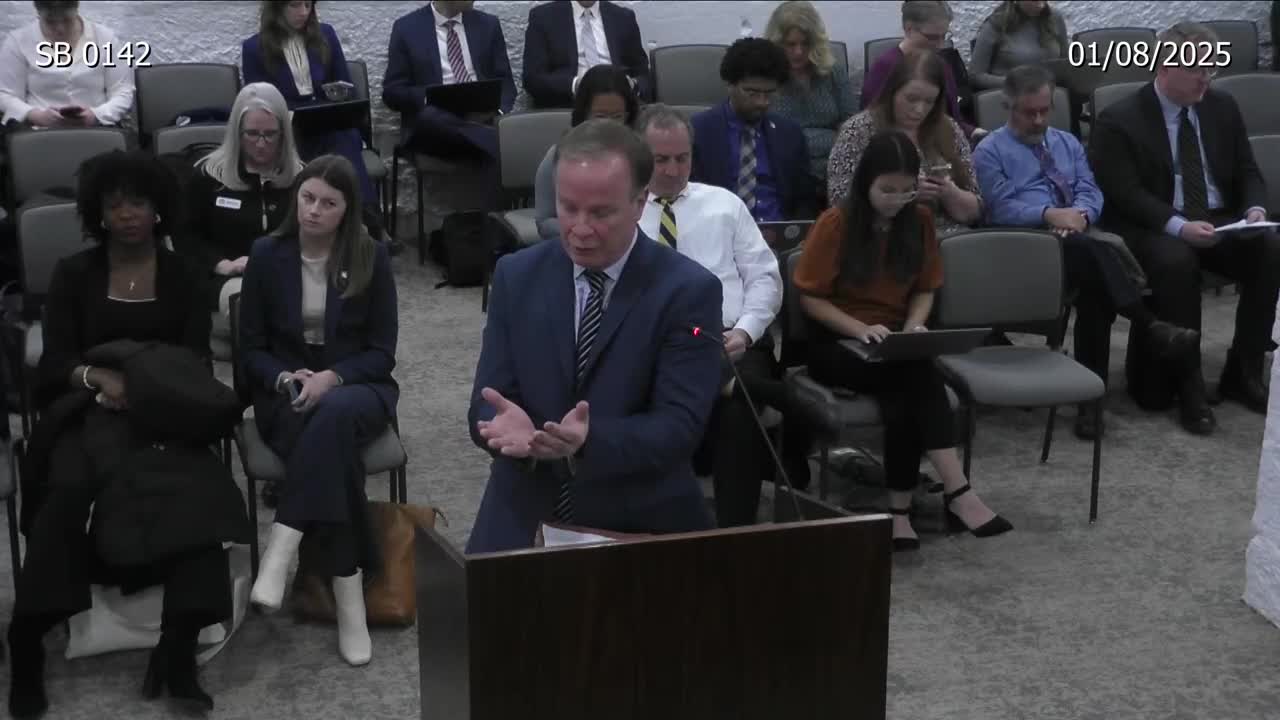Senate debate begins on social‑media age limits for minors; sponsors to refine draft
Get AI-powered insights, summaries, and transcripts
Subscribe
Summary
Senate Bill 11, which would restrict social‑media access for minors without verifiable parental consent, drew mixed testimony. Supporters urged restrictions to address youth mental health; civil‑liberties groups warned of constitutional problems and litigation. The committee plans to consider stakeholder amendments before voting.
Senate Bill 11, a proposed restriction on minors’ access to certain social‑media platforms absent verifiable parental consent, drew both support from religious and child‑advocacy groups and opposition from civil‑liberties and technology analysts at the Indiana Senate Judiciary Committee.
Sponsor overview: The bill’s sponsor told the committee the aim is not to police content but to limit unsupervised social‑media use by under‑16 minors and to provide parents tools to control access. The draft handed out to senators narrows the definition of "social media operator" and removes previously proposed private causes of action. The sponsor said the attorney general would have enforcement authority and that the committee intends to add a 30‑day cure period to allow platforms to fix compliance issues before civil penalties are sought.
Supporters’ testimony: Representatives from faith groups and child‑welfare advocates told the committee that rising youth mental‑health problems are correlated with social‑media exposure and urged restrictions. Alexander Mingus of the Indiana Catholic Conference supported the bill as a tool to preserve parental authority and help children grow in a safer environment. Many supporters framed the bill as a parental‑empowerment measure that would encourage parental participation in young people’s online lives.
Opposition and legal concerns: Chris Daley of the ACLU of Indiana said the bill, as drafted, likely infringes minors’ First Amendment rights and that similar statutes in other states have been enjoined in litigation. He cited recent injunctions in Arkansas and Ohio and argued the state risks expensive litigation and a finding that the regulation is an unconstitutional content‑based restriction if the statute prevents minors from accessing constitutionally protected speech. The ACLU recommended alternative measures including parental education, mental‑health investment, and voluntary industry standards rather than a broad statutory restriction.
Practical and technical questions: Senators probed how platforms would verify parents’ identity, how to handle conflicting parental consent where parents share custody, whether algorithms would be used to detect under‑age users, what an "access" threshold means (browser viewing vs. account creation), and how to treat VPNs or misrepresented birthdates. The sponsor said the bill focuses on account‑based platform access (user registration) with a parental‑consent verification step using commercially reasonable tools and commercial encryption to protect family data.
Committee status: Chair Brown and the sponsor said work with stakeholders produced a substantially narrowed draft and that committee staff will continue to refine language: adding a cure period for enforcement, clarifying verification methods, and addressing custody/consent conflicts. The committee did not vote and will continue work on the bill before a future vote.
Why it matters: The proposal sits at the intersection of parental rights, youth mental health and free‑speech law. Supporters cite public‑health concerns and parental prerogative; opponents point to constitutional limits and real‑world enforcement challenges. Committee members signaled they will pursue drafting adjustments before further action.
Source excerpts: Sponsor remarks, testimony from the Indiana Catholic Conference, and counsels from the ACLU and other witnesses were recorded on the hearing record.
